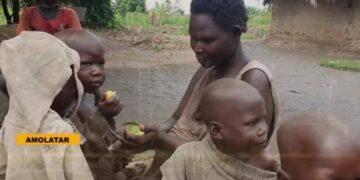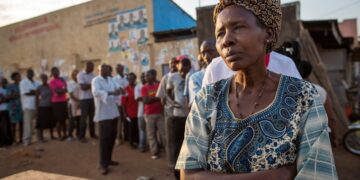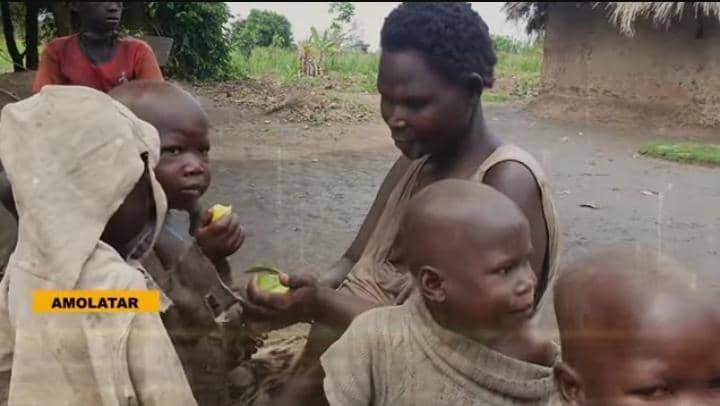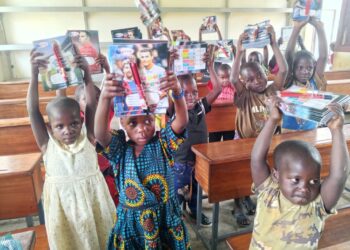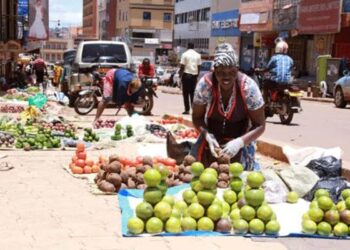AMOLATAR
At just 33, Dilis Akoli of Awi Dako Owil village in Amolatar District is already a mother of twelve, a reality that highlights the deep struggles of poverty, culture, and limited access to reproductive health information.
When visited at her home, the scene was heart-wrenching, children feasting on raw, partly rotten mangoes, their only meal of the day.
Married in 2010, Akoli has given birth eight times, including four sets of twins. She and her husband, 42-year-old Joel Ogwang, live with their children in a single mud hut with no phone, no radio, and no steady income.
Ogwang takes on casual jobs and fishing when possible, but with twelve mouths to feed, the family’s basic needs remain unmet. Their eldest son, Stephen, already works in the garden daily, yet still goes to bed hungry.
Health experts warn that repeated pregnancies, especially multiple twin births, expose women to life-threatening complications. Gynecologist Dr. Andrew Odur says Dilis’s case is not isolated in rural Uganda, where access to family planning remains limited.
Health Minister Dr. Jane Ruth Aceng notes that the fertility rate in the Lango sub-region averages four children per household far below what Akoli is experiencing. Meanwhile, Gender Minister Betty Amongi has urged families like Akoli’s to seek help through government programs and the Equal Opportunities Commission.
But for Akoli and her husband, these policies remain distant. What they long for, they say, is simple, food for their children, education for their future, and a small chance to rebuild their dignity.
Source: Olwawo Eddy
